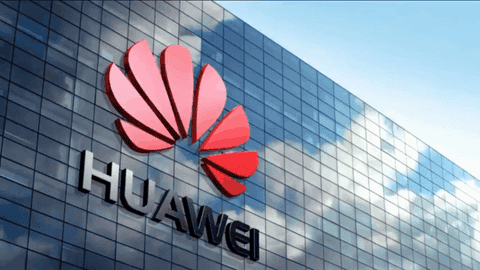Since the start of the Russian attack on Ukraine and the imposition of anti-Russian sanctions by the US in connection with this, the Chinese Huawei has been taking an active part in the technological support of its northern neighbor. However, now that the country is facing much tougher restrictions from the so-called “international community”, the risk of falling under new, much tougher restrictions for the company increases many times over.
According to The Financial Times, citing industry experts, if companies like Nokia and Ericsson decide to completely cut ties with Russia, the latter will need the support of China, in particular companies like Huawei, more than ever. We believe that after the events, it was this company, along with the Chinese ZTE, that played a key role in replacing the network infrastructure in Russia.
It is known that Huawei became one of the first “beneficiaries” as a result of the sanctions imposed on Russia after the start of the operation in Ukraine. According to the publication, citing MTS, sales of Huawei smartphones in the first two weeks of March grew by a record 300%; other Chinese brands registered sales growth at a “triple-digit” pace. At the same time, the company began to actively implement new business projects.
Nevertheless, many experts believe that Chinese companies like Huawei and Xiaomi are taking a big risk by continuing to sell smartphones and other electronics to the country – most of their products directly or indirectly use American solutions that are prohibited from being delivered to Russia due to new sanctions. At the same time, Huawei still has room to maneuver in the US, unlike ZTE, which actually fell under a total ban.
Huawei risks falling under tough US sanctions for cooperating with Russia
According to Western experts, there are no legal export routes for Chinese companies today. Theoretically, one could imagine that Huawei could come up with a way to produce smartphones and base stations; without American tools and software, but it is not yet possible to avoid using semiconductors made using American tools.
Now Huawei is working hard to get rid of dependence on American chips; and is trying to circumvent sanctions on its own business; by trying to get comparable performance from less modern chips. However, last year alone, the company’s consumer goods sales fell 50% and total revenue fell 29% year-over-year.
Russia needs Chinese technology. After Samsung and Apple liberated almost half of the Russian smartphone market; and Nokia and Ericsson refused to supply telecommunications equipment; the country is in need of new supplies, if only to maintain the network infrastructure in its current state.
Huawei and ZTE, according to some reports, already control 40-60% of the wireless network equipment market in Russia; most of the rest is by Nokia and Ericsson. Additionally, cooperation in the smartphone market is not ruled out; recently the Russian manufacturer BQ announced that it is considering using the Harmony OS operating system instead of Android. However, so far, Huawei has said that it has no plans to promote the OS outside of China.
Meanwhile, the US continues to keep a close eye on both Huawei and other Chinese companies. Washington has so far left quite a few export licenses to foreign suppliers that allow them to trade with Huawei; but the US can revoke such permissions easily. Huawei says it is “thoroughly analyzing” the new sanctions. The company refuses to comment on plans for Russia.
